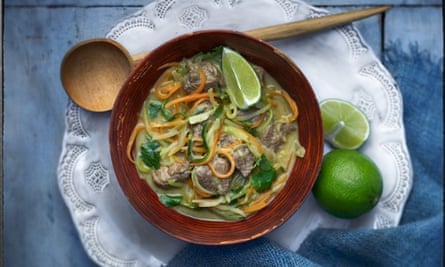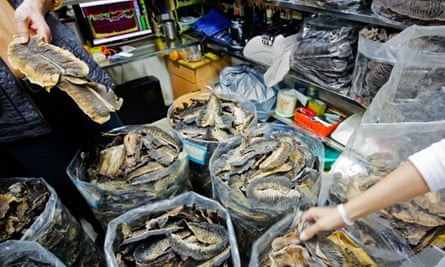How to start your own business, by Johanna Leggatt
As many of us are heading back to work after the Christmas break, the reality of dealing with co-workers you dislike and tasks you detest can seem like an unnecessarily cruel jolt of reality.
For most of us, this feeling wears off: we forget the halcyon days of beach summers and overseas trips and we may even start to derive a measure of pleasure from our work once more. For others, however, it is a wake-up call, tipping point, D-day. They don’t want to work for someone else. They want to follow their own passion, and for many this means running their own business.
So what do you do if you find yourself in this situation? To begin with? Absolutely nothing. You need to give work at least a couple of months to ascertain if this is a genuine desire to go out on your own or if you are just caught up in the fug of post-holiday come down.
If the feeling sticks around, however, it may be time to develop a plan, and a good one, too. Write down the skills you will need to start a business, income projections, some of the hardships you expect to face (so you are prepared for them) and what you hope to achieve (financial freedom, work-life balance). Next it’s time to get down to the nuts and bolts. You will need some savings to go out on your own, and this will vary from business to business. If you are launching your own career as a consultant or a freelancer who will work from home then it will be a relatively straight-forward set-up, but even in this instance you will need to factor in some overheads (a new laptop, marketing materials, website), as well as a financial float to keep you going for a few months in the case of late payments (this will definitely happen).
If your new business involves leasing a premises and hiring staff, I suggest visiting the federal government’s business website which will guide you through the process of setting up an ABN, arranging insurance and sorting out taxes.
The important thing to remember is that while starting your own business is rewarding, you have to be self-motivated and comfortable with a degree of risk. Furthermore, you have to be prepared to give something up, whether that be financial security, leisure time or social interaction with co-workers. If the sacrifice seems worth it, it is definitely time to take a leap into the unknown.
How to start cooking for scratch, by Saman Shad
Like most people, I didn’t really start cooking till my early 20s – through uni I lived at home and was lucky enough to have food readily available in the fridge.
When I decided to go travelling by myself, with no fixed date for return, I decided I probably should learn, as I would now be fending for myself.
It was my grandmother who taught me the basics of making a curry – her staple food and mine. The thought of cooking curry from scratch sounded daunting but my grandmother assured me it was actually quite simple.
The basis of any curry she said started with a paste made from some basic spices you should always have in the cupboard. After that you fry some onions, add any veg or meat and coat it in the paste before leaving to cook. True to her word it really was that simple. I still use the basics of this formula when making any curry.

Unbeknown to me, what my grandmother did when she passed on the art of cooking a curry was really to pass on the love for cooking. It didn’t take me long to realise how cooking anything from scratch imbues it with an unconscious sense of accomplishment. You’re not only eating better, but you know exactly what you’re eating. And most of the time you’re doing it with love.
If you’re not used to cooking it can seem like a daunting task to start – but everyone, even the most accomplished chefs, started as inexperienced cooks.
Jamie Oliver has set up a website to teach people how to cook at home, which includes some useful factsheets. There are also a number of videos teaching the basics of cooking, which will tell you about knife skills, sauteing and marinating.
Once you’ve honed some basic skills it’s time to start cooking. Begin with some simple recipes – here are some to get you going. Like any skill, cooking needs to be practiced on a regular basis for you to gain confidence as a cook. Even if it means making one or two meals a week, it’s a start. Before you know it you’ll be used to cooking and it will become part of everyday life.
Once you start cooking from scratch it won’t take you long to realise it is actually surprisingly easy, as well as being better for your health and your wallet. And it may even spark in you a love for cooking like it did for me.
How to shop sustainably, by Calla Wahlquist
If your new year’s resolution is to shop ethically without looking like a character in Portlandia, it’s best to do your research at home.

Thankfully, there’s an app for that. Australia’s sustainable seafood guide app, produced by the Australian Marine Conservation Society, provides details on about 90 different commonly-fished species. It’s also Tim Winton-approved, if you prefer your seafood recommended by a national living treasure.
Not-for-profit Palm Oil Investigations is also working on a barcode scanning app to help consumers make sense of the 200 palm oil names and derivatives that make it on to supermarket shelves. Between 50% and 80% of products in Australian supermarkets contain palm oil (including Tim Tams – sorry).
The World Wildlife Fund estimates that an area the size of 300 football fields is cleared every hour to make way for palm oil production. An estimated 1,000 orangutans are killed due to palm oil production every year and the species is expected to become extinct in five to 10 years.
Food Standards Australia and New Zealand is considering a recommendation to require all products containing palm oil to be labelled. In the mean time, look for products marked as containing sustainable palm oil (more common in cosmetics) and print out this guide to cart around the supermarket.
If your concern is animal welfare, it helps to understand what’s allowable under certain labels.
For example, Coles and Woolworths brand “free-range” eggs are produced 10,000 chickens to a hectare, or one square metre per bird. The CSIRO recommends no more than 1,500 birds per hectare, but that’s a voluntary standard. Animal Welfare Labels lists the stocking density of most Australian egg brands, as well as those whose free-range status has been challenged by the Australian Competition and Consumer Commission. That website also contains information on beef, lamb and pork producers.

Comments (…)
Sign in or create your Guardian account to join the discussion